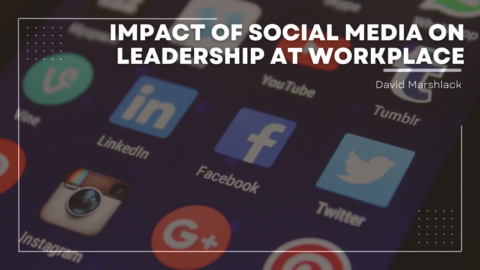In the contemporary workplace, the impact of social media on leadership is profound, shaping how leaders communicate, connect, and cultivate their professional personas. While social media offers an array of opportunities for leaders to engage with their teams and foster a positive work culture, it also poses potential pitfalls that can impact both leadership effectiveness and organizational harmony.
Best Practices:
Transparent Communication:
Social media platforms provide leaders with an additional channel for transparent communication within the workplace. Leaders should leverage these platforms to share updates, celebrate team achievements, and provide insights into organizational goals. Transparency builds trust and a sense of unity among team members.
Employee Recognition and Motivation:
Recognizing and appreciating employee contributions publicly on social media platforms can be a powerful motivator. Leaders can highlight individual and team successes, fostering a positive work environment and demonstrating that hard work and dedication are acknowledged and valued.
Thought Leadership and Industry Insights:
Leaders can establish themselves as thought leaders in their industry by sharing relevant insights, trends, and expertise. Posting thought-provoking content showcases the leader’s knowledge and positions the organization as a forward-thinking and industry-savvy entity.
Building a Positive Company Culture:
Social media allows leaders to portray and reinforce the organization’s values and culture. Sharing glimpses of team events, and behind-the-scenes moments, and highlighting diversity and inclusion initiatives contribute to building a positive company culture. This, in turn, attracts and retains top talent.
Pitfalls to Avoid:
Confidentiality Breaches:
Leaders must exercise caution when sharing information on social media to avoid breaches of confidentiality. Posting sensitive or proprietary information can severely affect the leader and the organization. It’s essential to uphold confidentiality standards and know the boundaries of what can and cannot be shared.
Inappropriate Behavior and Communication:
Social media can blur the lines between personal and professional communication. Leaders should avoid engaging in inappropriate behavior, using offensive language, or sharing controversial opinions that may be detrimental to their professional image or the organization’s reputation.
Neglecting Work-Life Balance:
Constant connectivity through social media can lead to an unhealthy work-life balance. Leaders should be mindful of the expectations they set for their employees. For example, employees must be encouraged to respond to work-related messages during regular working hours only and should not be expected to remain available throughout the day.
Misinterpretation of Messages:
The brevity of social media communication can sometimes lead to misunderstandings. Leaders should be aware of the potential for misinterpretation and ensure that their messages are clear and contextually appropriate. Miscommunication on social media can lead to confusion and affect team morale.

